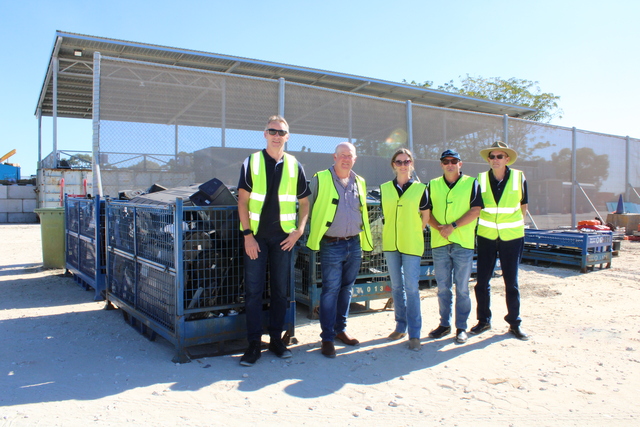Over 5,000 tonnes of silage film and covers are discarded after use every year in Australia. These products are made from high quality linear low density polyethylene (LLDPE) plastic, which does not break down when buried, is unsightly and presents a hazard to stock.
This has long presented a disposal problem for farmers, with much of the plastic ending up in council landfills, causing a disposal issue and wasting a scarce resource.
Tapex, a major supplier of fodder conservation plastics, has been working with Victorian rural councils and Victorian Regional Waste Management Groups to come up with an answer to this problem.
A new collection system called Plasback is just that. It provides a long term, low cost solution by making disposal easy for farmers, creating new value out of what was previously a plastic waste stream and reducing waste at council landfills.
Plasback features a specific bin and liner arrangement that Manager of Tapex’s Environmental Solutions Division, Ed George, says has some distinct advantages.
“The bin and liner system ensures a clean, segregated waste stream,” he said. “As the liner is clear, foreign matter and contamination are easily detected. Handling costs are reduced and the liner itself is linear low density polyethylene, so it can be baled and reprocessed as part of the waste.”
Ed George said that using bins and separate liners, and segregating the waste, is very important as it enables recycling in Australia rather than in China.
“The liners also offer the benefits of a consistent size for handling and baling, easy manual lifting and easy transport in farm vehicles, particularly in the back of the ute,” he said.
“A box of liners will recycle over half a tonne of silage wrap, which is nearly two years usage on the average dairy farm. The cost of turning what was previously waste into a useful resource is really very low.”
Farmers deliver the full Plasback liners to designated council transfer stations at no charge. The liners are then inspected and deposited at a dedicated Plasback dropoff site before being processed and delivered to Tapex’s recyclers in Melbourne.
The recycled plastic then becomes the primary ingredient in an alternative to plywood sheet called Tuffboard. It can be drilled, sawn, routed and nailed just like timber.
Plasback collection bins are a good example of Tuffboard’s versatility – they are made from the product.
The Plasback program is expected to be introduced into other Australian states within the next 12 months.
For further information visit www.plasback.com.au or contact Ed George by email on egeorge@tapex.com.au
*Copy supplied by Tapex







